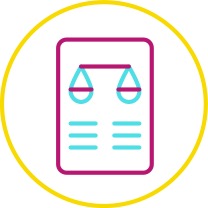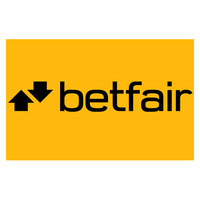Gambling
Whether your account has been closed or you can't withdraw your winnings, there are loads of reasons you might need to talk to a gambling company or bookmaker! Resolver can help you get things sorted in just a few clicks. Check out our guide to gambling complaints!

Your Rights
All gambling companies have to give details of their complaints procedures. These details will be available at the operator's high street outlet and online. If you feel that you've been treated unfairly by a gambling company, you can use Resolver to make a complaint to an alternative dispute resolution (ADR) service. If you feel that the ADR is unable to resolve your complaint, the Gambling Act 2005 allows you to bring your issue to court. When you place a bet with a gambling company, you're entering a legally enforceable contract with them.
I can't withdraw my winnings!
My account has been closed!
A gambling company has the right to close any account.
It may choose to do so for a number of reasons, including;
- if there is a risk of harm,
- if you've broken the terms and conditions,
- if there is risk of detriment to the business, suspicion of money laundering etc.
You can use Resolver to contact the company to find out why your account has been closed.
Gambling companies should always act in a way that's consistent with their terms and conditions. If you think you've been treated unfairly, you should consider starting a case via Resolver.
I've self-excluded but was still allowed to gamble!
The Gambling Commission requires that gambling firms act responsibly in managing self-exclusion.
This means that you should generally expect them to carry out reasonable checks to make sure that you should be playing.
Firms will normally carry out checks when you make an account and when you attempt to make a withdrawal.
If a firm finds that you’ve self-excluded, they’ll generally void your bets and return your deposit.
If you think that a firm hasn’t acted responsibly, you should consider raising a case via Resolver.
I didn't understand the terms and conditions!
According to the Consumer Rights Act (2015), gambling companies must provide a summary of their T&C’s, written in plain and simple language. If you feel the T&C's of the bet aren't sufficiently clear and jargon-free, you should use Resolver’s free gambling complaints tool to make a complaint.
My bet was settled at the wrong odds!
When you place a bet, you’re only entitled to the price actually available at the time. You're not entitled to any price quoted or displayed in error.
The exception is if you choose to bet at the starting price on horse and greyhound racing. This means the odds/price decided by an independent group after a race starts.
This means that you may have a bet accepted by the cashier, but still have it paid out at a different price.
All bookmakers operate under rules that allow them to settle bets at the correct odds.
They do this to stop collusion between shop staff and customers.
You should be aware the onus is on you to make sure the price accepted by a cashier is one that's actually available.
What if a technical problem causes shop screens to display incorrect prices? Well, bookmakers are still allowed to settle bets at the prices that should have been shown.
Even so, bookmakers still have to pay out fairly.
If you think that a bookmaker is paying out under the correct odds, or that the bookmaker is advertising false odds on purpose, you should use Resolver to make a complaint.
Best odds guaranteed (BOG) – what are my rights?
BOG is offered by most major bookmakers. If a customer takes an early price during the period BOG is being offered, the selection will be settled at that price unless the starting price (SP) is bigger, in which case the bookmaker should settle at the higher starting price.
You should be aware that the amount you can benefit from settlement at best odds is normally capped at around £1,000 (£50,000 for online).
Bookmakers should display information regarding this cap in any promotional material. If you feel you've been misled into making the bet as the result of unclear information, you should use Resolver to launch a complaint. You should also raise a complaint if BOG isn't paid to you and you’ve not be told officially that it’s not available to you.
Accumulators and 'related bets' – what are my rights?
In some cases, bookmakers will have special rules concerning related bets in accumulators. These rules are known as “related contingencies” – bookmakers don't generally allow related contingencies, but they don't expect their staff to spot them when they’re accepted. This means that your bet may still be accepted, even if it's invalid – you aren't, however, entitled to a pay-out if you've made an invalid bet.
My bet was disallowed because it was late!
Bookmakers usually allow customers a limited amount of time in which to make bets after the event has begun.
The length of time allowed may vary according to the bookmaker in question, but it can range between a limit of 3 seconds after the start of the race for virtual races, 3 seconds for greyhound races and 20 seconds for horse races over 2 miles.
The time at which bets are closed off is determined electronically by the bookmaker’s systems.
When your betting slip has been accepted and scanned, the bet details have to be manually entered by shop staff. It's only after this point that the staff can determine whether or not a bet has been placed late.
If the bookmaker is particularly busy, it may take a long time for the details of the bet to be entered into the system. This may mean that it may not always be possible to inform you before the end of the race that your bet was placed late.
With this in mind, if you feel that you've been treated unfairly or that your bet has been incorrectly marked as late, you can use our free late bets complaint tool to contact your bookmaker.
Placed a bet but the official results were wrong!
In some cases, a result will be incorrectly credited by officials at the point of resolution. For example, goals may be attributed to the wrong player as the result of confusion, or athletes may be stripped of their victory as a result of drugs-testing. In these cases, bookmakers will typically suspend resolution of any bets for a period of a few hours (the length of time may vary according to each bookmaker’s rules).
An amendment may be published by an official source (usually the Press Association) within this time period – if this is the case, bookmakers will typically resolve any bets according to the new outcome.
If the time limit is exceeded without a clear resolution, the bookmaker will usually resolve any bets according to the first outcome. In some rare cases, the bookmaker will void any bets and issue a refund accordingly.
If there is any confusion as to the outcome of the bet, we advise you to contact your bookmaker. If you are unhappy with their efforts at resolving the matter, Resolver can help direct your complaint to an ADR.
Cash-out – what are my rights?
Many bookmakers offer “cash-out” options on matches that are traded in-play. This can get complicated, as bookmakers suspend markets when there is a match incident (such as a free kick, corner or goal), and this will cause a suspension of cash out.
In practice, this means that it will be very difficult to cash out a bet containing multiple selections. For this reason, bookmakers reserve the right to withdraw the cash-out facility at any time. If you the T&C’s for cash out weren't clear, you may be entitled to make an appeal according to the Consumer Rights Act (2015).
Mistakes with coupons, betting slips and betting receipts
In cases where you have made your bet using a football coupon and the bet on your receipt is different from what you have marked on the betting slip, the error may arise from a fault in the scanning software. Unfortunately, the onus is on the customer to check that the receipt matches the bet – in these cases, the bookmaker will resolve the bet according to the receipt.
If you have marked a betting slip to present to the cashier, the onus is once again on you to check that the betting receipt provided correctly matches up with your betting slip.
I don't think the company had a gambling licence!
Every gambling company (both on the high street and online) that offers gambling to customers in Great Britain is required by law to have a gambling licence from the Gambling Commission. It must be displayed in store or on every web page. If you gamble with an unlicensed company, you do not have any rights if anything goes wrong. The onus is on the consumer to check that the company has a licence before you gamble.
I didn't understand the game I was playing
Gambling companies must provide rules for each of their products. Different types of companies may also need to provide players’ guides to their games. For example, a casino must offer a player’s guide to the house edge, while an online gambling company must provide a player’s guide to each gambling product (bet, game or lottery) that they offer. You should make sure you understand the rules before you start to gamble. If you feel that the instructions provided weren’t clear, you may be entitled to make an appeal according to the Consumer Rights Act (2015).
The game/betting machine broke whilst I was playing
The gambling company must make clear what happens if your game or bet is interrupted. Different companies will have different rules for what happens in the event of an interruption.
This includes, for example, betting on horse racing, where there may be specific rules concerning postponed races or withdrawn runners. If you are unhappy with the way the bookmaker has resolved the bet, you can use Resolver to make a complaint.
Ambiguous betting slips
It is your responsibility to make sure that your betting slip is clearly decipherable. Bookmakers will settle your bet based on a reasonable objective interpretation of what appears on the betting slip – not on what you intended the bet to be. Always be certain that your betting slip is clearly understandable!
Fixed odds betting terminals (FOBTs) and self-service betting terminals (SSBTs) – what are my rights?
FOBTs
The rules concerning fixed odds betting terminals are currently under review. There is currently debate about limiting the amount that can be wagered in each transaction.
In the meantime, if you have any concerns regarding fixed odds betting terminals, we recommend that you use Resolver’s free tool to make a complaint with your bookmaker. It is always worth registering your concern, as resolution may be possible.
SSBTs
SSBTs are often found in bookmakers’ shops. The assumption commonly made is that the SSBTs are operated by bookmakers, but this is not the case. The majority of SSBTs are operated by Best Gaming Technology (a gambling software company owned by Playtech). Problems arise here because the SSBTs are typically branded to match bookmakers – however, SSBT bets may not be settled according to the bookmaker’s rules. For example, many prices and offers available over the counter are not available from the terminal.
I gambled more than I wanted to!
Online gambling companies must give you the option to set a ‘reality check’, which is a pre-organised interruption in play.
You should have the option to set the time intervals at which the reality check will appear on the screen. If the online gambling application obscures the clock on your device, the application must display the time of day or the amount of time that has elapsed since the beginning of the gambling session.
Online gambling companies must also allow you to set limits on the amounts you want to spend.
I've self-excluded but I'm still receiving marketing material!
If you’ve made a self-exclusion agreement but find that you’re still receiving marketing material, you should use Resolver to contact your bookmaker. They are obliged to remove your information from their mailing lists. If they don’t they are breaking the Data Protection Act (1998), which means you can complain to the relevant regulator.
A site says the minimum withdrawal is higher than my deposit!
The Competition and Markets Authority (CMA) has ruled that gambling companies shouldn't put barriers in the way of consumers getting their money out. Companies should not set minimum withdrawals at a higher amount than the minimum deposit.
In addition:
- Players won’t be required to play multiple times before they can withdraw their own money.
- Gambling firms must ensure that any restrictions on gameplay are made clear to players, and can't rely on vague terms to confiscate players’ money.
Free spins and bonus slots
Many online gambling firms have introductory offers that include free spins and bonus slots, as well as credit to be used on the site.
Always read the terms and conditions – many bookmakers will demand that a deposit is made in exchange for the bonus. The Gambling Commission believes that you should be able to get your money back out in the event that you don’t want to gamble. If you find that you can't do this, you should use Resolver to launch a complaint.
Opening multiple accounts
It is standard industry practice for gambling operators to permit customers to only have one account with them.
There are two main reasons for this - firstly to stop customers taking advantage of what may appear to be generous sign-up offers by opening multiple accounts, and secondly to prevent customers placing bets via multiple accounts where the bookmaker may wish to restrict the size of the bet the customer wishes to place.
In the case of bonus offers, most operators restrict offers to one per household. If you have opened an account and accepted a signup offer yourself, you may encounter problems if someone else in your household then opens an account with the same company.
You may find that not only will any winnings you have accrued be confiscated, but you may also have your account closed and forfeit your deposits as well. It is therefore important that you carefully read and understand the operator's T&C’s before agreeing to them.
Advertising
The content of a gambling advert was not appropriate
Licence holders must follow the rules put in place by the Committee for Advertising (CAP), the Broadcast Committee for Advertising Practice (BCAP) and industry code of practice for advertising.
The advert is aimed at children of vulnerable people
There are regulations to protect children and vulnerable people from being harmed by gambling. The Advertising Standards Agency (ASA) is the UK’s independent regulator of gambling. It enforces the UK advertising codes, which are designed to ensure the adverts placed for gambling products don’t target children or vulnerable people.
The advert was misleading
If you feel that an advert misled you concerning the terms and conditions of a game, you should use Resolver to make a complaint.
I'm still receiving marketing information after self-excluding
If you find that you're still receiving marketing information after opting to self-exclude, you should make a complaint to your bookmaker as soon as possible. Resolver's free tool will help you stop any further marketing materials being sent to you. If they don’t they are breaking the UK’s Data Protection Act (1998) which means you can complain to the relevant regulator.
Football
Extra-time wins
Be careful to determine whether you’re betting on the outright result of the match or simply the 90-minute result. Confusion often arises regarding these bets, as the common misconception is that bets on the “match” include extra time and penalty shootouts – this isn’t the case. The “match” refers to the 90 minutes of full time, including stoppages.
If, for example, you want to gamble on Liverpool to win (regardless of whether they win in extra time or not), you should bet on Liverpool “to win outright” or “including extra time and penalty shootouts”.
The bookmaker should make this clear – on some occasions, particularly regarding bets on cup matches or play-offs, this isn’t the case. If you think that a bookmaker has deliberately misled you or displayed unclear information, you can use Resolver to make a complaint.
Goalscorer betting
If you intend to bet on an anytime goalscorer, you should double-check that your bookmaker offers an anytime market. In many cases, customers write, for example, “Rooney to score”, with the intention that the bet be interpreted as a bet on Rooney to score at any point during the match. If, however, the bookmaker doesn’t have an anytime market available, they will typically accept the bet as a bet settled on the first goalscorer (depending on the bookmaker’s rules).
Be aware that own goals do not typically count in goalscorer betting.
If you feel that the bookmaker has misled you about the terms of a goalscorer bet, you can use our free goalscorer betting complaint tool to make a complaint.
The "five-minute" rule
If you place a bet after kick-off, you may fall foul of the "five-minute" rule. This is a rule upheld by most bookmakers that means that your bet will only stand if there has been no goal scored, penalty awarded or no one sent off within the first five minutes. The exact time limit depends on the bookmaker in question.
If in-play betting is being offered online, many bookmakers will allow late bets to stand at the in-play price available at the time the bets were placed. However, bookmakers who have a five-minute rule tend to enforce it for coupon bets.
Horse racing
Rule 4
When a horse is withdrawn from a race, it becomes easier for the other horses to win. Rule 4 is a deduction that bookmakers make from your winnings when you have taken a fixed odds price prior to the withdrawal of runners. If, however, you back a horse that has been withdrawn from the race, your stake will be refunded.
Overseas racing
Customers often find that their bets on overseas racing have been settled at shorter odds than expected. This is usually because settlement has been based on the bookmaker’s own price or an industry price rather than on the pari-mutuel or Tote dividend issued by the track.
There may be multiple prices available for the same race – customers should clearly specify which price they want.
Gambling complaints tool
The Resolver gambling complaints tool will guide you through preparing and submitting your complaint.
Helping you with Gambling services
You can raise issues with 753 companies in Gambling services
Key companies include:














